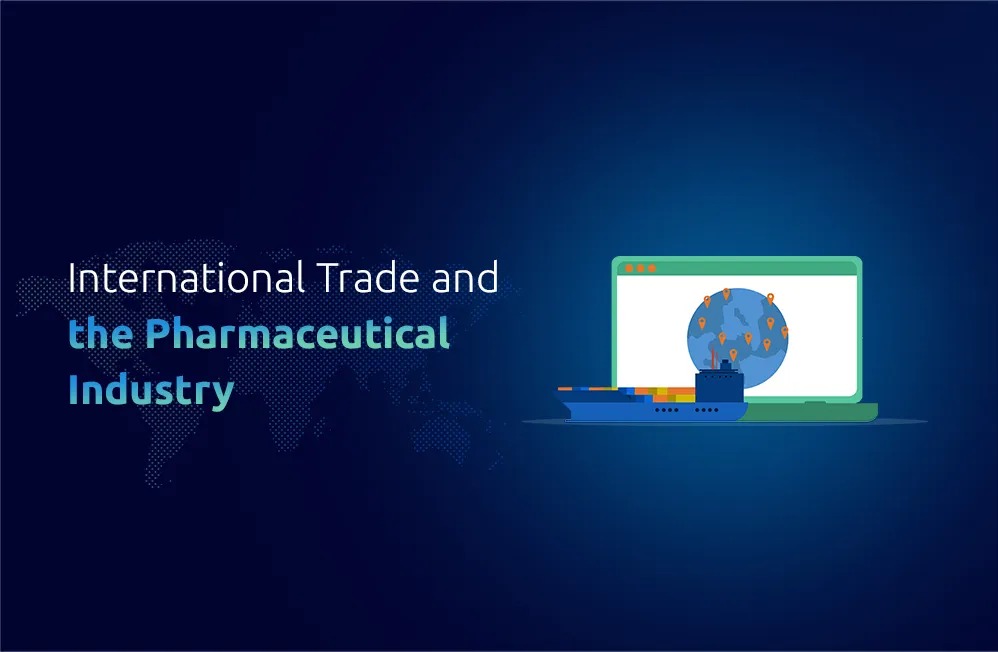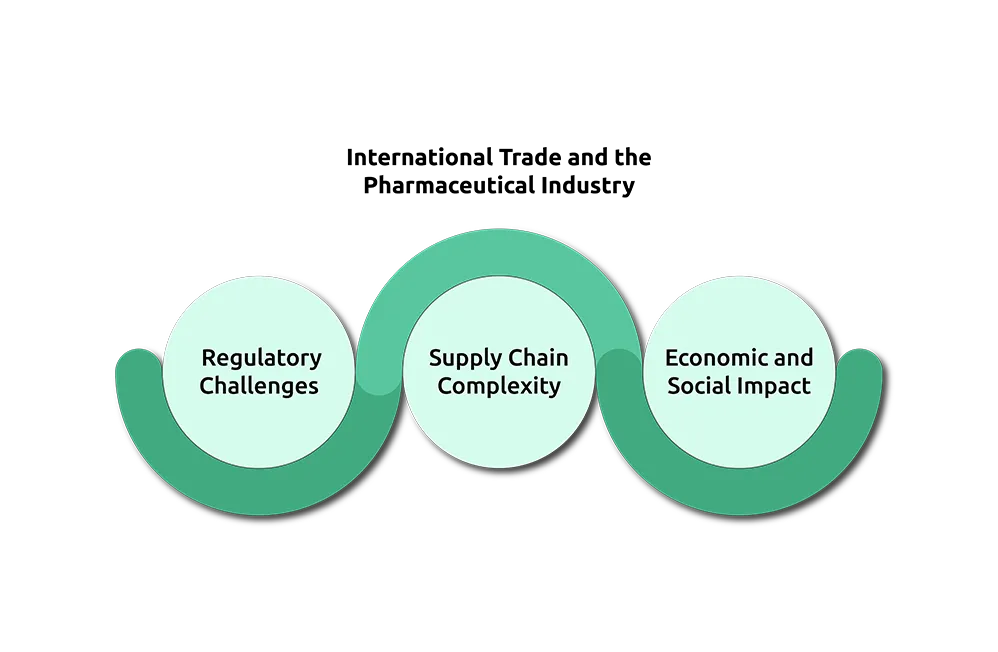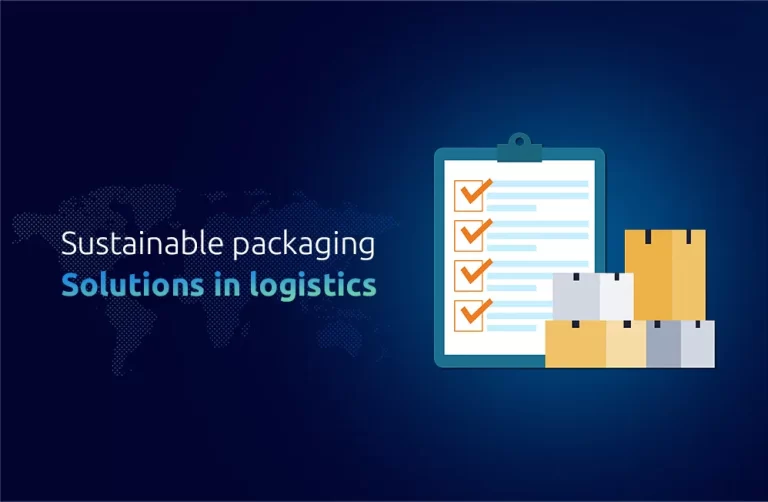Ready to grow globally? Fill out our inquiry form and let’s make international trade easier for you!
Insight
International trade plays a critical role in today’s interconnected global economy, benefitting industries across many different industries worldwide. One such sector that sees massive international trade success is pharmaceuticals; an increase in medication and healthcare products around the globe has spurred global trade, leading to increasingly complex and dynamic trading environments for pharmaceutical companies as they must navigate regulatory, logistical, and market-related challenges to deliver products on time across borders.
Internationalization of Pharmaceutical Industries
Pharmaceutical industries operate globally. Global demand has seen significant surges due to advancements in healthcare technology & medicine over the last several decades, fueled by strong global growth rates for sales of prescription medicines. As populations age & increase, demand for lifesaving drugs and innovative therapies has never been higher.
Pharmaceutical businesses can import and export medical equipment to meet global demand because of international trade. The United States, Switzerland, Germany, & India, the topmost exporter of pharmaceutical supplies, contribute almost one-third of the global pharmaceutical industry’s over $1.5 trillion in sales in year 2022.
Challenges & Regulatory Compliance
One of the most difficult aspects of global pharmaceutical trading is guiding regulatory norms. Every nation has its laws ruling the import and sale of pharmaceuticals, and organizations such as the FDA, EMA, and WHO enforce stringent standards. Product safety is only one aspect of compliance; other aspects include labelling, packaging, and documentation, all of which can differ by location. Many pharmaceutical businesses join with export compliance specialists to get past these obstacles & guarantee timely, seamless shipments while avoiding expensive delays or fines.
Supply Chain Management and Logistics
Another significant aspect of the global pharma trade is logistics. Pharmaceuticals are delicate goods which need to be handled & transported securely. Certain pharmaceuticals require specific storage & transport conditions, including medical equipment that are sensitive to temperature. From manufacturing plants to the final distribution locations, maintaining the cold chain is crucial.
Pharmaceutical companies frequently have to handle the complexities of global freight as well, such as inventory management, customs processes, & transit delays. Because the pharmaceutical industry is so dynamic, businesses frequently have to come up with innovative and effective solutions to satisfy demand across different geographies. This could mean working with marketers and logistics partners who specialize in pharmaceutical goods, negotiating new contracts, or identifying alternate transportation routes.
Trade Agreements and Market Access.
Trade agreements are also important in determining the face of global pharmaceutical business, with companies enjoying lucrative opportunities to grow and have their operations automated. Through bilateral and multilateral agreements that include the EU-US Trade and Technology Council, agreements are being established that will make working between nations easier, by simplifying procedures and lessening tariffs on pharmaceutical firms. These agreements contribute to stabilizing markets, which is extremely important to make sure constant supplies of pharmaceutical equipment across borders.
In addition, Free Trade Agreements such as the Regional Comprehensive Economic Partnership significantly impact the global rankings of the pharmaceutical industry. The FTAS, through minimization of import/export taxes, expediting customs procedures, and opening new markets that were previously out of reach, create an opportunity for pharmaceuticals to cover a larger global territory. The global trade climate in the pharmaceutical industry for 2025 is also likely to improve because these frameworks will enhance greater market access, make the pharmaceutical products more available and affordable, and broaden markets to new consumers.
Why Prefer One Union Solutions?
We at One Union Solutions are aware of how complex the international pharmaceutical trade may be. We are here to assist. We have developed into a vital partner for pharmaceutical businesses looking to expand internationally thanks to our in-depth knowledge of regulatory restrictions, supply chain difficulties, and global compliance needs.
Our tailored solutions aim to make life simpler; whether that means navigating red tape efficiently, optimizing logistics, or opening doors into new markets so that you can focus on providing vital healthcare products around the globe – let us be your partner as you expand your global reach!
Conclusion
International trade is vital to the pharmaceutical industry’s ability to meet global healthcare demands with medical equipment. Yet navigating its complex regulations, logistics, intellectual property protection, and market access requirements can be daunting; pharmaceutical companies must adapt quickly as the industry continues to shift while adhering to all relevant international laws and building resilient supply chains if they hope to remain successful in meeting the ever-increasing demand for quality healthcare worldwide. Trade agreements, regulatory cooperation, and innovation provide avenues for global pharmaceutical firms to meet this global need for quality healthcare products worldwide.
Did You Know
By 2024, the pharma device market is expected to generate an astounding US$508 billion in sales.
FAQs
- Why do pharmaceutical companies depend on international trade?
Ans: Pharmaceutical companies rely on international trade to expand the reach, meet global demand, and ensure essential healthcare products are accessible in underserved regions.
- What are the primary obstacles to international pharmaceutical trade?
Ans: International trade presents many difficulties for the pharmaceutical sector, such as complicated legal requirements, strict customs procedures, problems with intellectual property protection, and disparate product standards across nations. It takes knowledge of international commerce regulations, paperwork, and compliance to navigate these obstacles successfully.
- Which laws have an effect on pharmaceutical exports?
Ans: In order to guarantee lawful market access, pharmaceutical exports are subject to import/export limitations, safety regulations, and approval procedures.
- What trade agreements effects do have on the pharmaceutical sector?
Ans: In response, trade agreements help healthcare companies save time and money in trade across the borders by improving market access, reducing tariffs, and easing processes.
- How do supply chain management and logistics function in the medical sector?
Ans: In order to maintain product integrity, logistics and supply chain management make sure that medications are delivered safely, on schedule, and in accordance with legal standards, including temperature control.












